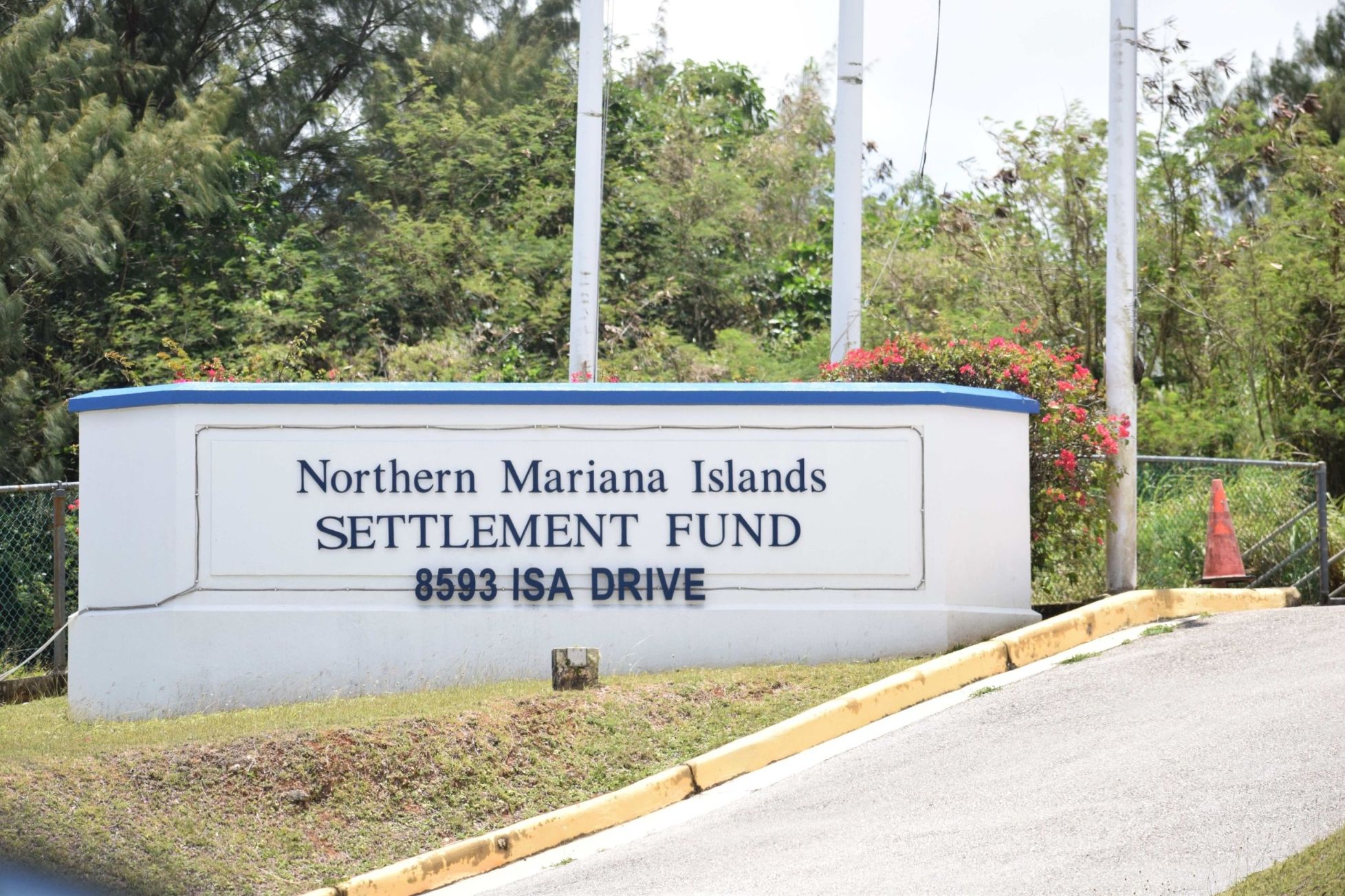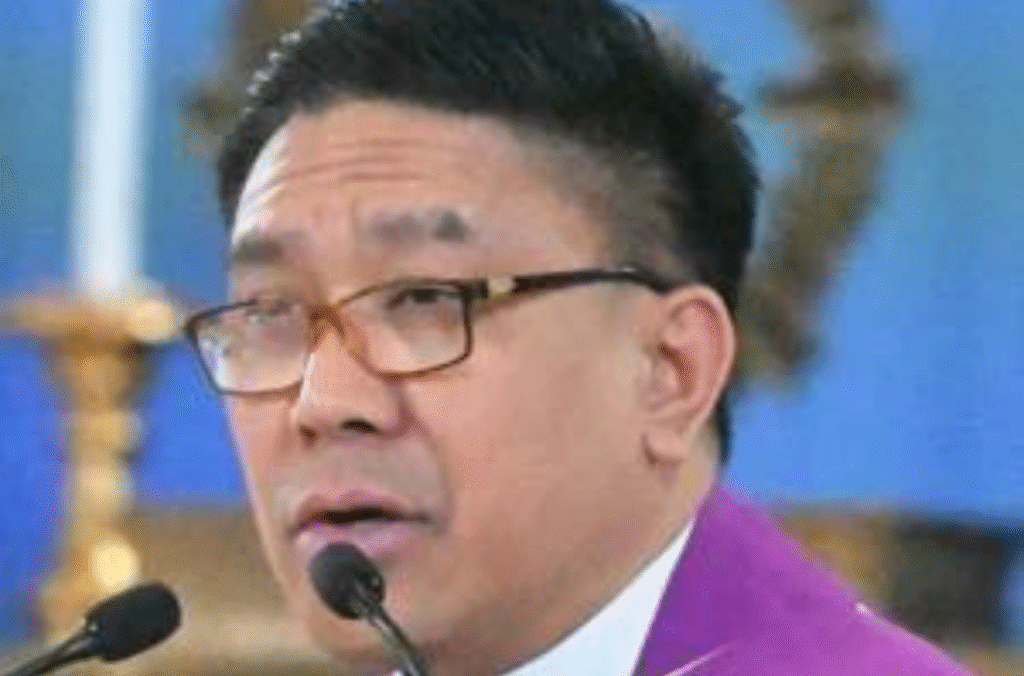HAGÅTÑA (The Guam Daily Post) — The Archdiocese of Agaña stands opposed to two bills seeking to protect and expand access to abortion on Guam, stating through written testimony that abortion is “one of the most sorrowful and deadly tragedies of human society.”
“Each time the Catholic Church or other churches publicly speak up for innocent babies in the womb, we are criticized by some who argue that we should not try to impose our religious beliefs upon others. However, we will never stop pointing out that divine, moral law overrules man-made laws. What is naturally and morally wrong, remains so despite some people’s attempts to rationalize or justify otherwise,” Father Romeo Convocar, apostolic administrator of the Archdiocese, stated in testimony on behalf of the church.
“We emphasize that being pro-life and fighting for the protection of unborn children is not exclusively Christian. There are many people who are not religious, not members of a church or do not even believe in God who fully understand and passionately defend the right of the unborn to live. They understand this truth: That all human beings have an inalienable right to live, grow and pursue their full potential as members of our society,” Convocar added.
Lawmakers heard testimony from several individuals last week both supporting and in opposition to Bills 106-37 and 111-37, although more spoke out against the bills, considering both written and in-person testimonies. The Archdiocese shared Convocar’s testimony over the weekend.
Health Protection Act
Both Bills 106 and 111 propose the Health Protection Act of 2023, a series of provisions that would essentially grant health care providers and their patients a statutory right to provide and receive abortion services on Guam.
Bill 106 would let voters decide if these provisions should be put in place. Bill 111 would enact them, without the need for a general vote.
“Both bills would do away with present local legislation requiring abortion doctors to provide women and girls considering abortion with important information about the procedure, including its risks and possible ramifications. In terminating the life of a fetus within them, abortion is traumatic for the woman physically, mentally, emotionally, and we say, definitely also spiritually. We see that both bills allow for abortion to be carried out at virtually all stages of pregnancy, including allowing partial birth abortion. The bills do away with parental consent, as they move to replace current laws on abortion which include important restrictions and requirements,” Convocar said.
Within its provision, the Health Protection Act would bar prohibitions on abortion at any time before fetal viability, including any prohibition on a particular abortion procedure.
Viability is defined in the act as the point in a pregnancy at which, based on the good-faith medical judgment of a health care provider and the facts before that provider, there is a reasonable likelihood of sustained fetal survivability outside the uterus, with or without artificial support.
The Health Protection Act would allow abortions after viability when continuation of the pregnancy would pose a risk to the patient’s life or health.
‘Most disturbing’
Between the two measures, Bill 106 is “most disturbing,” according to Convocar, who said the bill’s title and introduction “dangles” the idea of a referendum for voters to decide on abortion, while the rest of the bill is a “one-sided campaign promoting unrestricted abortion on Guam.”
“Instead, any proposed legislation introducing a call for an islandwide referendum should be neutral in its language and promotion,” Convocar said.
While the Health Protection Act within Bills 106 and 111 would protect and expand abortion access on Guam, the practice is already legal on the island, at least for now. Attorney General Douglas Moylan is attempting to revive a 30-year-old local ban on abortion under the legal precedent established by the U.S. Supreme Court in Dobbs v. Jackson Women’s Health Organization, which essentially stated that there is no constitutional guarantee to abortion.
But independent of the ban, there are existing mandates that may limit a person’s ability to seek an abortion on Guam, including the controversial “in-person” consultation requirement. Two Hawaii-based doctors who sought to provide abortion services through telemedicine challenged the mandate in federal court, and were able to obtain a preliminary injunction, but lost that injunction on appeal.
No providers
Guam has no abortion provider physically on the island, and local laws require the reporting and publication of abortion statistics, including the name of facilities where abortions are performed.
According to a court filing at the 9th U.S. Circuit Court of Appeals, the two Hawaii-based doctors were willing to fly to Guam, but “due to the fear other physicians had of being associated with them,” could not find a clinical site to provide in-person abortion care.
The Health Protection Act would bar any limitation on a provider’s ability to provide abortion services through telemedicine, other than limitations generally applicable to telemedicine, as well as bar any requirement for medically unnecessary in-person visits to an abortion provider, or an entity that does not provide abortion services.
Convocar said “in-person” consultation is important because “it helps women who are under distress and are in need of face-to-face consultation with vital, complete information” about abortion.
“This face-to-face consultation can often save women and girls from a lifetime of regret. We care not only for the unborn but for the mother, as well,” Convocar said.
There were discussions about in-person consultation and other existing mandates at last week’s public hearing, and those opposed to Bills 106 and 111 also spoke about the need for in-person consultation.
Testimony from medical community
But Dr. William Weare pointed out an inconsistency with that testimony, stating that telemedicine is an appropriate alternative to face-to-face consultations.
“This is the year 2023. Telemedicine now – it’s new, a lot of people don’t realize what it is – but it’s an extremely powerful medical tool. And to say that this is not appropriate, I think is inappropriate,” Weare told lawmakers last week.
The Guam Medical Society did not speak on Bill 106, but did support Bill 111. The organization maintains that a woman has the right to make decisions about her reproductive choices after understanding her options and the associated risks or benefits.
“The Guam Medical Society will always advocate against interference in shared medical decision-making,” GMS President Dr. Samir Ambrale stated in written testimony.
Weare spoke for himself at last week’s hearing, but said he would support the position of the Guam Medical Society.
“I think this is a decision that needs to be made between the doctor and the patient, and I really have great qualms when people, who don’t have the kind of background physicians have, get into this discussion. There’s a lot of nuances to this decision, and there is no good decision. I can’t overemphasize that. None of the alternatives are ideal,” Weare said in response to Speaker Therese Terlaje asking him about whether abortion should be decided through referendum or by senators alone.
When asked about viability, Weare said he did not believe the definition in the Health Protection Act answered the questions “that are involved here.”
“There’s a lot more to viability than being able to breathe and having a heartbeat. Viability and having the right to life, liberty and the pursuit of their interest involves the ability for the child to be able to function fully. And there are many instances where, in order to do that, it may be totally impossible. And in other instances, … considerable time, effort and money need to be expended in order to have even a minimal existence,” Weare said.
“These are decisions that I don’t think anyone outside of the individual who is involved really has any business talking about. We can present the alternatives, but in the end, this comes down to where the mother is and what the mother feels. And it’s important that she be given information, but to say … what’s right for one person isn’t necessarily right for another person who’s in the same situation. And I don’t think that’s what laws are about,” Weare added.

Romeo Convocar











